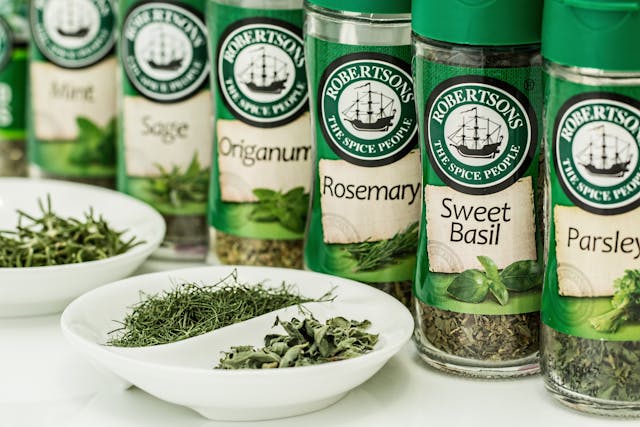How to Build Flavor: Using Herbs, Spices, and Marinades
Cooking flavorful meals doesn’t have to rely on salt or heavy sauces. By mastering herbs, spices, and marinades, you can elevate simple ingredients into dishes bursting with taste. Understanding how to combine these elements creates depth, aroma, and complexity in every bite.

Understanding Herbs and Spices
Herbs and spices are the foundation of flavor:
- Herbs: Usually leaves from plants like basil, cilantro, or rosemary. Fresh herbs add brightness and subtle aroma, while dried herbs have concentrated flavor.
- Spices: Derived from seeds, roots, or bark, such as cinnamon, cumin, or paprika. They provide warmth, heat, or smokiness.
Tip: Add delicate herbs like parsley or basil at the end of cooking to preserve freshness, and heartier herbs like thyme or rosemary earlier to release full flavor.
Combining Herbs and Spices
Layering flavors ensures a balanced, nuanced dish:
- Start with aromatics (onion, garlic, ginger) as a base.
- Add spices early to bloom their flavor in oil or liquid.
- Finish with fresh herbs for brightness and contrast.
Experimenting with combinations, such as smoked paprika with oregano or cinnamon with cumin, can create unique flavor profiles for both savory and sweet dishes.
Using Marinades Effectively
Marinades not only enhance flavor but also tenderize proteins and vegetables:
- Basic Components: Oil for moisture, acid (vinegar, lemon juice) for tenderizing, and aromatics for flavor.
- Timing: Marinate meats for at least 30 minutes to several hours; vegetables usually need 15–30 minutes.
- Layering: Use herbs and spices in the marinade to infuse depth, then season again lightly before cooking.
Marinades are versatile—you can create sweet, tangy, spicy, or umami-rich profiles depending on the dish.
Balancing Flavors
Flavor-building is about balance:
- Sweetness: Honey, maple syrup, or fruit can balance acidity or heat.
- Acidity: Lemon juice, vinegar, or tomatoes brighten dishes.
- Saltiness and Umami: Soy sauce, miso, or anchovies deepen flavor without overpowering.
- Heat: Chili, black pepper, or ginger adds warmth and complexity.
Tasting as you go is essential to achieving harmony among flavors.

Final Thoughts
Mastering herbs, spices, and marinades transforms cooking from routine to creative. By understanding how to layer flavors, balance taste, and experiment with combinations, even simple ingredients can become extraordinary dishes. With practice, building flavor becomes intuitive, making every meal more vibrant and memorable












